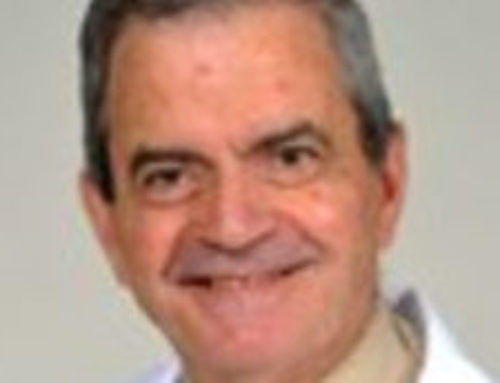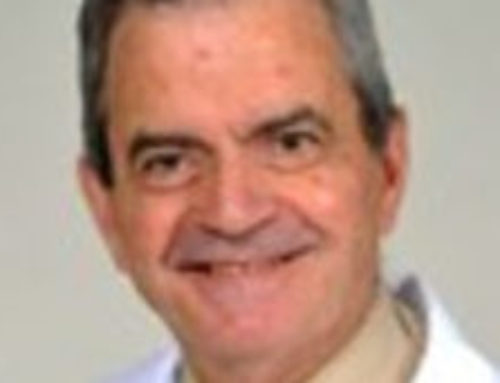March 27, 2020
Guiding Principles For Catholic Healthcare Professionals During a Pandemic
The Ethics Committee of the Catholic Medical Association
Catholic physicians and health care workers for centuries have led the world in the care for the most vulnerable during times of crisis. Recalling our commissioning by the Divine Physician, the Catholic Christian physician has a special calling—different from the secular world—in that he or she sees the human person as an invaluable creation of God whose individual worth should never be sacrificed—even in the midst of a pandemic. Because of this immutable truth, Catholic physicians have an obligation to lead in times of crisis and to ensure both the upholding of human dignity and the safeguarding of the public health.
Our belief in evidence-based clinical care and public health measures should be translated through the lens of Catholic medical ethics and social teaching with respect to justice and the just distribution of scare resources.
Catholic social teaching is therefore predicated on these key principles: (1) the inherent and fundamental principle of the dignity of human life; (2) the principle of subsidiarity; and (3) the principle of solidarity.
The dignity of human life is the lens through which all care for the sick—in time of crisis or not—should be viewed. God does not make man the arbiter of the value of life and in humility the Catholic health care worker recognizes that no choice should be made that sacrifices the innate dignity of the individual human person, even when questions about scarce resources arise. In short, the human person should not be forgotten in questions about the health of the human race.
The principle of subsidiarity teaches that all decisions are, generally speaking, first and best made at the most fundamental level—beginning with the competent individual and his or her family, and from there proceeding to the different levels of government. This liberty should still, provided it does not jeopardize the public health, be a fundamental principle in times of health crisis.
The principle of solidarity becomes especially important in times of health crisis—when the chronically ill, the elderly, the immune compromised, and other vulnerable populations are at increased risk; here it is imperative that the Catholic healthcare worker and administrators and policy makers continue to re-commit to the Catholic vision of the “other” as “another I,”—as St Pope John Paul II writes–a communio personarum
The Catholic Medical Association therefore proposes some guiding principles during this time of pandemic
- We have an obligation to support proper authorities working to ameliorate a public health crisis. The COVID-19 pandemic is a public health crisis. As Catholics committed to a social doctrine rooted in the respect due to every human person and promotion of the common good (the sum total of social conditions which allow people…to reach their fulfilment more fully and more easily)[1] we support efforts to mitigate the effects of the disease on both personal and societal levels.
- We recognize that an uncontrolled pandemic is a crisis situation, which can stress a healthcare system beyond its available resources. We know that material goods are not infinite, and as Catholics we should be responsible stewards of the health care resources we have available (see Ethical and Religious Directives for Health Care Services (ERDs), #4)[2]. We are also called to use our abilities to be creative and innovative in the setting of material limitations.
- We acknowledge the importance of the relationship between the patient and his or her caregivers, physicians, nurses, and other health care professionals. These caregivers are obligated to act at all times with professional competence as well as to enter into a relationship with patients that respects their individual inviolable human dignity.
- We know that persons with mental or physical disabilities, whether due to age, disease process, or injury, are to be treated no less as unique persons of incomparable worth (ERDs, #3). However we also know that these disabilities may in themselves be limiting factors to hoped-for benefits of medical interventions in the setting of a diagnosis of COVID-19.
- We appreciate that “the well-being of the whole person must be taken into account in deciding about any therapeutic intervention or use of technology.” (ERDs, #33) Catholic physicians are called to care for the person, not simply to treat disease. Using accepted clinical criteria, it is appropriate for certain interventions not to be used if they are not likely to benefit the patient, or for interventions to be discontinued when they are not contributing to recovery of the patient. While these decisions are made as appropriate and with respect for the individual patient, they can be assisted by studied and standardized tools, such as those utilizing objective vital organ parameters as indicating potential for survival.
- “We are not the owners of our lives and, hence, do not have absolute power over life. We have a duty to preserve our life and to use it for the glory of God, but the duty to preserve life is not absolute….The use of life-sustaining technology is judged in light of the Christian meaning of life, suffering, and death. In this way two extremes are avoided: on the one hand, an insistence on useless or burdensome technology even when a patient may legitimately wish to forgo it and, on the other hand, the withdrawal of technology with the intention of causing death.” (ERDS, Introduction to Part Five)
- We believe that persons in danger of death from illness, accident, advanced age, or similar condition should be provided with appropriate opportunities to prepare for death (ERDs, #55). This is no less true in the setting of critical illness due to COVID-19. Catholics should be provided spiritual support, and, as a general rule, they should have the opportunity to receive the sacraments in order to prepare well for death. We know that due to public health concerns and “no-visitor” policies in hospitals and nursing homes priests may be prevented from administering these sacraments. We acknowledge the mercy of God extended by the Church in her extraordinary granting of special indulgences in the setting of COVID-19[3] but also encourage consideration of the Holy See’s recognition that cases of serious need will occur and find ways to provide for communal absolution as well as the sacrament of reconciliation in this time of pandemic, possibly including “extraordinary hospital chaplains” to assist in this ministry. In the absence of clergy, assisting the patient in making a perfect act of contrition is part of the spiritual care of the patient.[4] Also part of such spiritual care is in helping the patient invoke the plenary indulgence (Apostolic Blessing) usually imparted by the priest after the Anointing of the Sick, when the patient is near death, but can be sought directly by the patient.[5]
- We recognize that some elderly and perhaps others with chronic illness would prefer not to be admitted to hospitals with the knowledge that they will have no possibility of family or loved ones to accompany them, due to “no-visitor” policies due to COVID-19, in their disease and possibly their final illness. We encourage the development of home health care specifically for COVID-19 patients, including palliative care and hospice that truly respects the human dignity of these patients.
- We encourage Catholic bishops, priests, and hospital chaplains to be innovative in their care of the elderly, sick, and dying and to work in coordination and solidarity with physicians and other healthcare workers for the healing of body and soul. At a time when the faithful are not able to congregate in their usual houses of worship, it is necessary for the clergy to support the faithful in safe and sincere ways. While live-streamed Mass and other on-line resources have the potential to reach many people, often these are not so accessible to the elderly and the disabled. We encourage pastors and appointed lay ministers to call sick parishioners whether at home or in the hospital to provide spiritual support.
- We confirm that Catholic physicians and healthcare professionals may never condone or participate in euthanasia or assisted suicide in any way (ERDs, #60).
- We believe that, as appropriate and to the degree possible, Catholic clinicians and leaders should be positively engaged in influencing the formulation of practices and guidelines concerning the just and equitable use of limited medical resources for the sake of the common good, in accord with the principles of Catholic social teaching including the prudent stewardship, subsidiarity, and solidarity.
- We encourage all Catholic healthcare workers to use this time of solitude and social distancing to deepen their own prayer life, to recommit to their divine vocation, to be creative and intentional—not merely in scientific and clinical pursuits aimed at the control of this virus—but also in enhancing a joyful family life and in their personal vocations, always guided by a trust in Divine Providence, in the Wisdom of the Holy Spirit and in Jesus Christ, “who makes all things new.”
[1]Catechism of the Catholic Church, § 1906
[2]Religious and Ethical Directives for Catholic Health Care Services, 6th Edition, U.S. Catholic Conference of Bishops, 2018
[5] United States Conference of Catholic Bishops, Manual of Indulgences (Washington,DC: United States Conference of Catholic Bishops, 2006), n. 12.
Click here for PDF.









